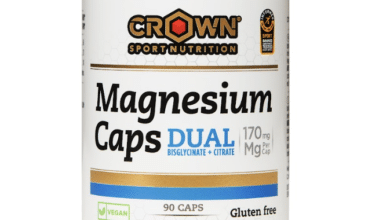Who cannot take omega 3: contraindications and precautions

The consumption of omega 3 may not be recommended in certain situations. For example, if you are allergic to fish, there are vegan alternatives based on seaweed.
Additionally, if blood-thinning medications are taken, omega 3 may increase the risk of bleeding. Also, in cases of liver disease such as cirrhosis, it can worsen symptoms.
During pregnancy, a specialist should be consulted due to the possible level of mercury in some supplements.
In case of coagulation problems, it is recommended to seek medical advice. People with hypertension or mood disorders should also take precautions when taking omega 3s.
It is important to follow the dosage instructions and consult a doctor to consume the appropriate amount.
Sources of omega 3 include fatty fish and plant foods, while supplements may not be as effective as foods rich in omega 3.
Contraindications of omega 3
The consumption of omega 3 may not be recommended in certain situations due to the possible contraindications it may present. Here we present some of them:
Fish allergy and vegan alternatives
If you have a fish allergy, it is important to use caution when consuming omega-3 supplements, as they can cause a serious allergic reaction.
However, there are vegan-based supplementation options obtained from algae, which can be a safe and allergen-free alternative.
Anticoagulant medications and increased risk of bleeding
If you are taking anticoagulant medications, it is necessary to keep in mind that the consumption of omega 3 can increase the risk of bleeding.
Therefore, it is advisable to consult with a doctor before taking omega 3 supplements to evaluate the risks and benefits.
Liver disease and increased risk of bleeding
If you suffer from a liver disease such as cirrhosis, you should be careful with excessive consumption of omega 3, as it can increase the risk of bleeding and worsen the symptoms of the disease.
If you have this condition, it is important to consult with a doctor before taking omega 3 supplements.
Pregnancy and risk of mercury in supplements
If you are pregnant, it is advisable to consult a health specialist before taking omega 3 supplements, as some forms may contain mercury. Exposure to mercury can be harmful to the developing fetus.
It is important to make sure you are taking supplements that are safe during pregnancy.
Blood clotting problems and increased risk of bleeding
In cases of blood clotting disorders, such as hemophilia, it is essential to consult a doctor before taking omega-3 supplements.
The consumption of omega 3 can increase the risk of bleeding and aggravate the symptoms of these disorders. It is important to evaluate the risks and benefits with a specialist.
Precautions when taking omega 3
When consuming omega 3, it is important to take into account certain precautions to guarantee correct use and avoid possible complications.
Below are some of the main precautions to keep in mind when taking omega 3:
High blood pressure and necessary precautions
People who suffer from high blood pressure should be cautious when consuming omega 3, since this fatty acid can increase blood pressure.
It is recommended that you consult your doctor before starting omega-3 supplementation to determine the appropriate dosage and evaluate possible interactions with other medications.
Mood disorders and brain chemical balance
People who suffer from mood disorders, such as depression or anxiety, should consult their doctor before taking omega 3.
This nutrient can affect the chemical balance of the brain, so it is important to evaluate if its consumption is appropriate and if it can interact with other medications or treatments used to manage these disorders.
Medical consultation and appropriate dosage
Before starting to take omega 3 supplements, it is advisable to consult with a doctor or nutrition specialist.
The health professional will be able to evaluate the patient's medical history, verify the existence of conditions or medications that may contraindicate its use and determine the appropriate dosage for each particular case.
It is important to follow the instructions and recommendations provided by the doctor, both in relation to the dosage and the duration of treatment.
Recommended amounts and sources of omega 3
Omega 3 is essential for maintaining good general health, but recommended amounts may vary depending on age and gender.
Below are the indications on the appropriate amounts of omega 3 for different population groups:
Recommended amounts according to age and sex
- For healthy adults, it is recommended to consume at least 250-500 mg of omega 3 per day to maintain good overall health.
- In the case of children, the amounts vary depending on their age. For example, for children aged 1 to 3 years, the recommended daily intake of omega 3 is 700 mg. While children from 4 to 8 years old should consume at least 900 mg per day.
- Pregnant or breastfeeding women have additional needs for omega 3. A daily intake of at least 200-300 mg of DHA (one of the components of omega 3) is suggested during pregnancy and breastfeeding.
Sources of omega 3 in foods and supplements
There are various sources of omega 3 that can be included in your daily diet to obtain the benefits of this essential fatty acid. The main sources of omega 3 are:
- Fatty fish such as salmon, tuna, mackerel and sardines are excellent sources of omega 3. It is recommended to consume at least two servings of fatty fish a week to obtain adequate amounts of this nutrient.
- Plant-based foods such as flaxseed, walnuts, and flaxseed oil are also rich in omega 3. Including these foods in the diet can be an option for those who do not consume fish or prefer plant sources.
- Additionally, there are omega 3 supplements available in the form of fish oil and krill oil, presented in capsules and tablets. These supplements may be an option for those who have difficulty getting enough omega 3 through diet.
Efficacy of supplements and recommendation to consume foods rich in omega 3
Although omega 3 supplements can be a convenient option, it has been observed that ingesting omega 3 through foods rich in this nutrient may have superior benefits.
A study has shown that consuming foods rich in omega 3, such as fatty fish, may have more favorable health effects than using supplements.
There are no previous results.




























